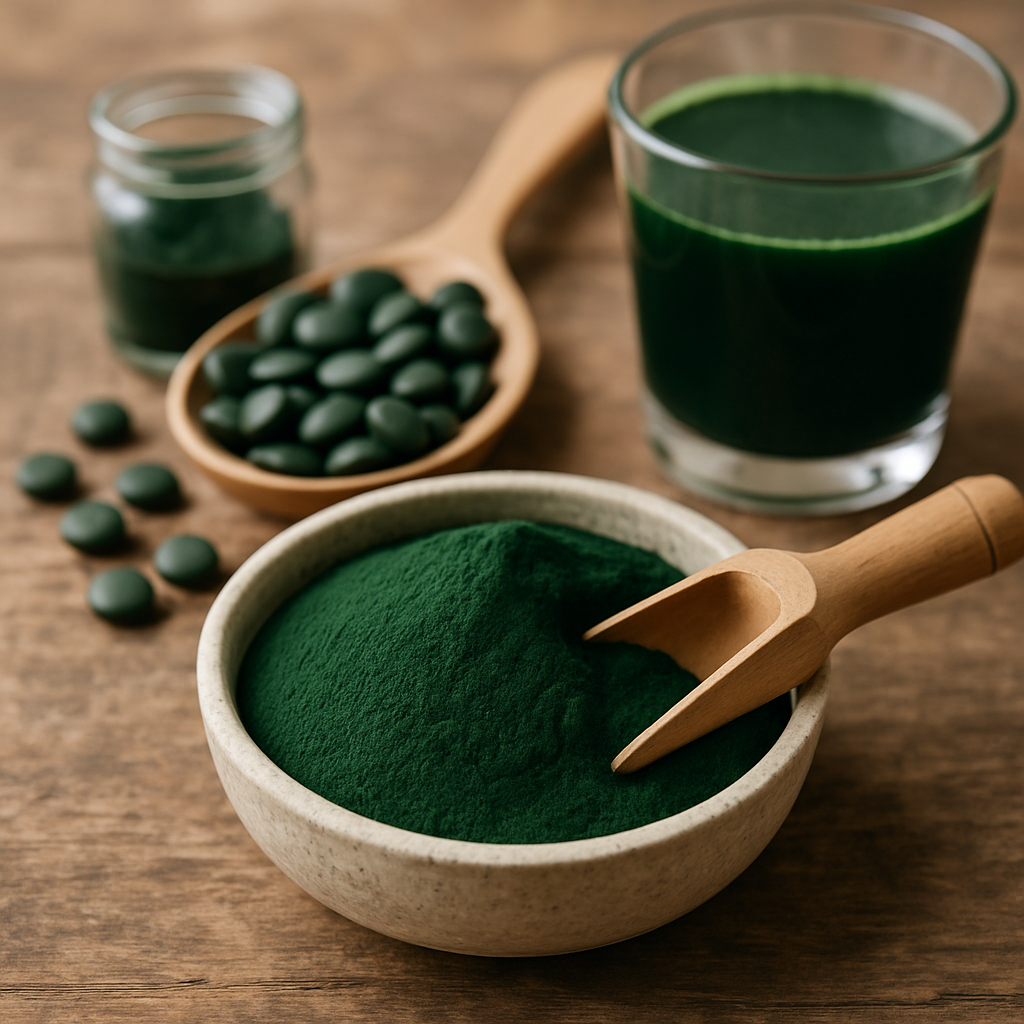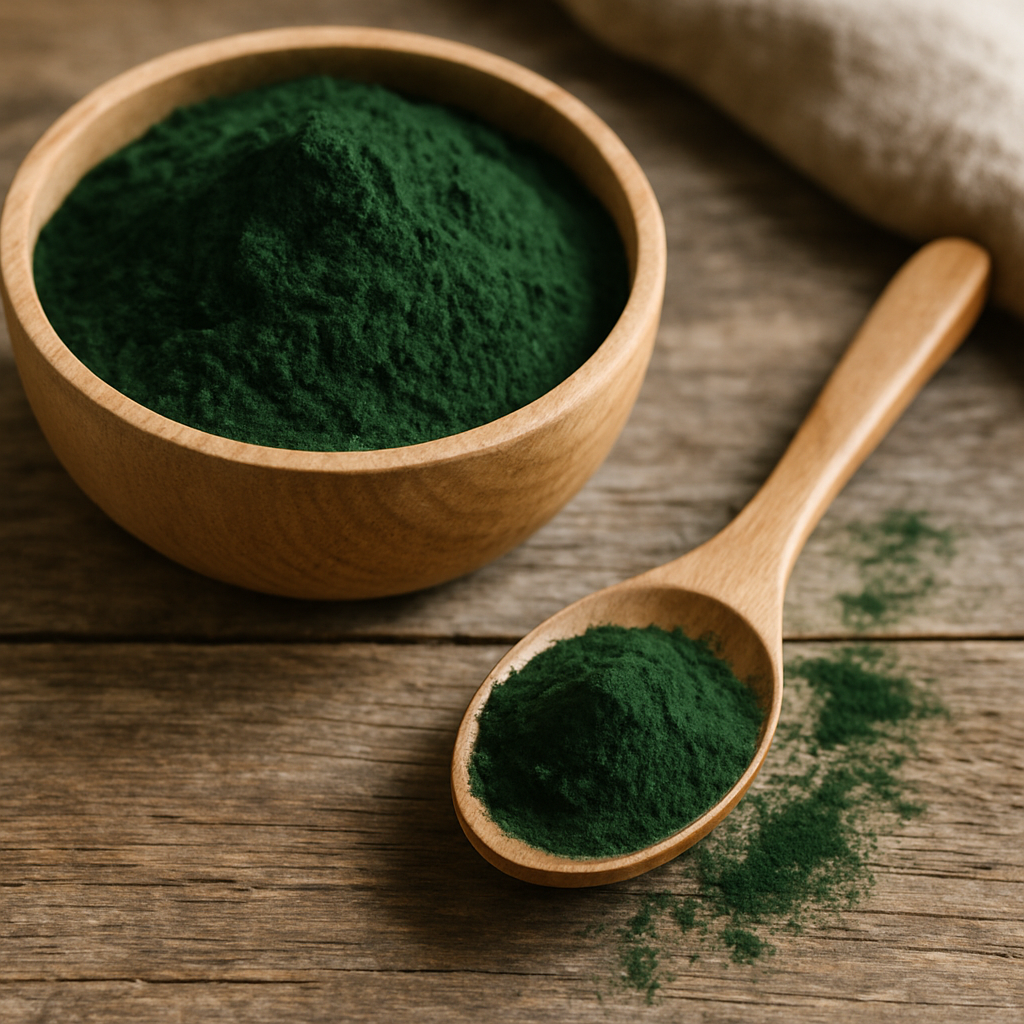Ask Ayurvedic doctor a question and get a consultation online on the problem of your concern in a free or paid mode. More than 2,000 experienced doctors work and wait for your questions on our site and help users to solve their health problems every day.
What Is Spirulina: Ayurvedic View, Health Benefits, and Safe Use

What Is Spirulina?
If you are thinking "what is spirulina?", you're not alone. With rising new trends, more people are turning to ancient superfoods to support modern wellness. Spirulina is a vibrant blue-green algae that has made its way from freshwater lakes to smoothies and supplements around the world. Known for its rich nutrition profile, it also offers several health benefits. Spirulina is becoming a staple for those seeking natural energy, detox support, and immune resilience. But is it really all it's hyped up to be?
Let's explore spirulina through the lenses of both modern science and Ayurvedic principles. We'll discuss its benefits, practical uses, and potential side effects. Whether you're curious about spirulina powder, wondering what spirulina tastes like, or considering tablets for convenience, this guide has everything you need to decide if this plant-based powerhouse fits your lifestyle.

What Is Spirulina and Where Does It Come From?
Spirulina as an Algae and Natural Superfood
Spirulina is a type of blue-green algae that thrives in alkaline lakes and warm freshwater environments. Technically a cyanobacteria, it’s among the oldest life forms on Earth. Spirulina gained modern scientific attention when NASA considered it as a sustainable food source for astronauts.
What makes spirulina stand out is its nutritional content—packed with protein, B vitamins, iron, copper, and magnesium. Just one tablespoon of spirulina powder delivers a substantial nutrient boost. That’s why it’s especially favored by vegans, vegetarians, and athletes.
Spirulina in Ayurveda: Cooling, Nourishing, and Alkalizing Properties
While not traditionally listed in ancient Ayurvedic texts, spirulina aligns with Ayurvedic principles. It’s considered cooling, nourishing, and alkalizing. Its anti-inflammatory nature helps pacify Pitta dosha, and its pigments (like chlorophyll and phycocyanin) support detoxification and cellular renewal.
Ayurvedic practitioners often recommend it for boosting Ojas (vital energy), enhancing immunity, and supporting digestion—especially during times of stress or fatigue.
Spirulina Benefits for Body and Mind
Spirulina Protein and Micronutrient Density
Spirulina contains up to 60–70% protein by dry weight, making it a complete protein source with all nine essential amino acids. It’s also rich in essential fatty acids, B vitamins, iron, and antioxidants like phycocyanin. These help in:
-
Muscle recovery
-
Mental clarity
-
Metabolic function
-
Reducing oxidative stress
-
Enhancing oxygen delivery through iron support
Spirulina for Immunity, Energy, and Detox Support
Spirulina boosts immunity through its antioxidant, anti-inflammatory, and antiviral properties. Research shows it can stimulate antibody production and immune defense cells.
It’s also a detoxifying agent, helping the body eliminate heavy metals (especially arsenic) and supporting liver function. This detox action contributes to improved energy, alertness, and resilience.
What Is Spirulina Good For in Daily Wellness?
In everyday wellness, spirulina helps support:
-
Hormonal balance
-
Digestive health
-
Mood and focus
-
Skin clarity
It’s especially helpful during high-stress periods or low-energy days.

How to Use Spirulina in Daily Life
Adding spirulina to your routine is simple. The key is finding the right form and preparation method that suits your taste and lifestyle.
Spirulina Powder vs Tablets: Which Is Better?
Spirulina Powder
-
Most versatile
-
Great for smoothies, juices, dressings
-
Cost-effective
-
Strong earthy flavor
Spirulina Tablets
-
Convenient and tasteless
-
Easy for busy lifestyles
-
May digest slower
-
Choose high-quality, binder-free brands
Start with 1g per day and work up to 3–5g daily.
Spirulina Smoothie Ideas and Combinations
Here are some tasty smoothie ideas to help you enjoy spirulina:
Tropical Detox Smoothie
Pineapple, banana, coconut water, ginger, spirulina powder
Green Glow Smoothie
Spinach, cucumber, green apple, lemon, mint, spirulina
Blueberry Power Smoothie
Blueberries, almond milk, chia seeds, vanilla protein powder, spirulina
Tip: Combine with vitamin C-rich fruits to enhance iron absorption.
What Does Spirulina Taste Like and How to Mask It
Spirulina has a distinct, earthy, grassy, and slightly marine taste. If you’re sensitive to strong flavors, try these hacks:
-
Mix with citrus (lemon, lime, orange)
-
Blend with sweet fruits (banana, mango, pineapple)
-
Add nut butters (almond, peanut)
-
Combine with cacao or chocolate protein
You can also buy flavored blends that include natural sweeteners and masking agents.
Spirulina Side Effects and Who Should Avoid It
While generally safe, spirulina may cause initial side effects like:
-
Digestive upset
-
Mild headaches or dizziness
-
Rare allergic reactions
Contamination Risk
Spirulina from unregulated sources may contain toxins or heavy metals. Always choose third-party tested, organic brands.
Who Should Avoid Spirulina
-
Individuals with PKU (contains phenylalanine)
-
People with autoimmune conditions
-
Pregnant or breastfeeding women (consult a doctor)
-
Those on blood thinners or immunosuppressants
Always consult a healthcare provider if you have concerns.
Conclusion
So, what is spirulina really? It’s a nutrient-dense algae with powerful benefits rooted in both science and holistic wellness. With its high protein, antioxidants, and immune-boosting properties, spirulina offers energy, clarity, and detox support.
Whether you enjoy it in smoothies, tablets, or functional foods, spirulina can be a valuable part of your daily routine. Just remember to start small, monitor your body’s response, and always opt for clean, reputable sources.
FAQs
Does spirulina prevent B12 absorption?
Spirulina contains pseudo-B12, which isn’t bioavailable for humans. Some say it may interfere with true B12 absorption, though evidence is limited. If you're vegan, stick to reliable B12 sources and consult a nutritionist.
Does spirulina reduce belly fat?
Not directly. It supports weight management by curbing appetite, boosting metabolism, and fighting inflammation—but it's not a magic fat-burner. Use it alongside diet and exercise.
Does spirulina help with hair growth?
Yes—thanks to nutrients like iron, protein, B vitamins, and omega-6. It can improve scalp health and hair growth, but only with consistent use and good nutrition overall.

